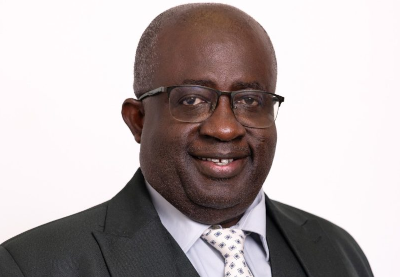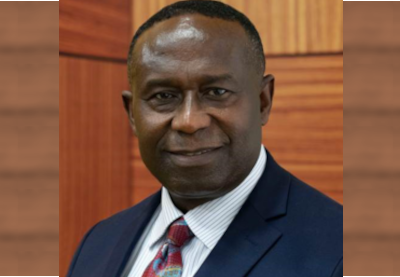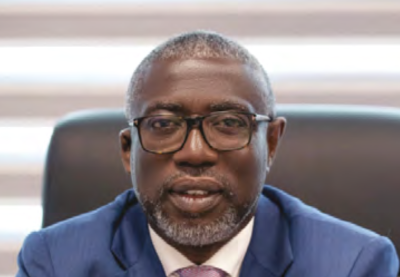David Jones-Mensah, the MD of Dominion International Petroleum Ltd. (DIPL), told Top Guide how he turned this wholly-owned Ghanaian company into a leading Bulk Distribution Oil Company in the country. It supplies customers in the West African sub-region with gasoil, gasoline, premix, kerosene, cracked fuel oil, crude oil, jet fuel, and bunkering services. It is also part of the Sidalco Group.
Can you share some of DIPL’s early successes with us?
In 2012, DIPL received its licence as a Bulk Oil Trading Company from the National Petroleum Authority (NPA). We were the first Bulk Distribution Oil Company (BDC) in Ghana to start operations by importing a full cargo of 28,000 metric tons of gasoline and 32,000 metric tons of gas oil to sell. DIPL has since been ranked by the NPA as one of the leading Bulk Distribution Oil Companies in the country.
We have partnered with players such as Shell, BP, Total and Glencore in various sectors and established our reputation as a reliable brand, with customers in Ghana and beyond. BP and Glencore are DIPL’s leading international suppliers of petroleum products for the West African sub-region. Over the past few years, DIPL has experienced a great increase in the supply of petroleum products to oil marketing companies (OMCs) such as Vivo Energy Ghana Ltd (which operates Shell fuelling stations), Engen Ltd and other indigenous OMCs.
What is your growth strategy for DIPL in the medium and long-term?
DIPL procured 16.7 acres of land in Tema to construct the first privately-owned 45,000 metric ton automated tank storage and loading gantry. This initiative was part of a plan to become the leading distributor of petroleum products in the West African sub-region. Since then, the company has redeveloped its business strategy to construct Ghana’s leading automated petroleum storage facility and increased its storage capacity to 80,000 metric tons in order to meet the needs of the West African sub-region. Construction is set to start very soon.
Your contribution to the growth of the oil and gas industry in Ghana is significant. What is the main drive in your entrepreneurial journey?
My proficiency in problem-solving from a very early age has influenced my vocational call for entrepreneurship. This ability coupled with my love for the oil and gas sector is what drives me daily. Aft er the fall in oil prices, I and my very able DIPL team have been focused on reshaping the vision and sustainability of the company. We found ourselves in an increasingly competitive market with unstable industry policies, both locally and internationally. As a result of the industry turbulence, we had to sidestep the competition and offer products and services tailored to meet our clients’ needs.
At 27, you are one of the youngest leaders in oil and gas. How did you become so successful at such an early age?
I have always viewed my age as an immense opportunity. My personal mantra is to persevere regardless of the situation. I also believe that my generation has the change agents Africa needs to introduce cutting-edge solutions to the problems facing our continent today. There is a growing global recognition of youth inclusion, pre-dominantly in Africa, and this is challenging the status quo of the African mentality. Our continent is going through the process of exploiting the full potential of an ever-growing youthful population, which will contribute to poverty reduction, sustainable development, and ultimately, the positive transformation of Africa.
How did you feel when you were nominated for the African Leadership Oil & Gas Young Business Leader of the Year Award?
I was humbled and honoured by this high distinction conferred on me by such an esteemed organisation. I hope this award inspires Africa’s youth to consistently pursue their dreams through hard work, determination and perseverance.
DIPL is run by a surprisingly young group of directors. What is the idea behind investing in young professionals?
We have a long-term outlook in relation to business sustainability and a core ingredient in achieving this goal is to invest in an energetic and resourceful team. DIPL’s managers are not only young, they have a proven track record in the energy sector and have taken a collaborative approach with customers and partners to identify and implement optimal solutions. We invest in long-term partnerships and understand that the commercial context can vary over time. As I said earlier, I strongly believe that the youth can deliver cutting-edge solutions to problems, and in this industry, besides expertise, being able to react quickly to changes and devise solutions to serve our clients is our main motivation and priority.
One of the main challenges in Africa is a lack of political will to encourage local content and participation. What is your view on this?
The best approach to change this is creating awareness at different levels. It is very important to engage individuals at the household, community and policy levels in order to influence our policymakers and enable them to understand their role as gatekeepers of our natural resources. Policies formulated in the right direction aim to, among other things, attract increased local value-added investments, create more job opportunities and indigenous knowledge, expertise and technology. However, it must be structured in a way that does not negatively affect the interest of existing foreign direct investments in the petroleum sector.
I BELIEVE THAT MY GENERATION HAS THE CHANGE AGENTS AFRICA NEEDS TO INTRODUCE CUTTING-EDGE SOLUTIONS TO THE PROBLEMS FACING OUR CONTINENT TODAY.
How are new oil discoveries off the shore of Ghana impacting your business strategy?
Production is expected to grow rapidly over the next six years, and our emerging oil and gas industry continues to attract key global industry players with the requisite skills and capacity to develop our discoveries. So the sector’s potential to be a driver for Ghana’s desired economic growth is evident and backed by sustained investor interest.
Following the recent major oil discoveries in Ghana, DIPL is well positioned to develop the downstream infrastructural capacity of the oil and gas value chain. This will compensate for the shortfalls faced by the industry and help improve local participation in the downstream sector. We will develop local capacity in all aspects of the oil and gas value chain through education, skills and expertise development. Thus, we will promote growth in the petroleum industry through collaborative efforts.
How would you describe Ghana’s current business environment in the oil and gas sector?
The government’s agenda to create a petroleum hub in the long-term in order to facilitate the exploitation and commercialisation of our oil and gas has positioned Ghana as one of the fastest-growing economies in the world. The petroleum hub development corporation is part of a roadmap which aims to engage stakeholders to play a significant role in drafting the bill. The idea is to ensure the value proposition offered to potential investors is well structured in order to de-risk investments. This way, the oil and gas industry can be one of the catalysts to transform our economy.
Can you tell us about DIPL’s initiatives in the field of Corporate Social Responsibility?
DIPL has teamed up with Memory Tree Initiative to reduce the carbon footprint of the energy sector in the West African sub-region. We intend to plant at least 10,000 trees every year to help preserve natural ecosystems and biodiversity. We want to be a lead campaigner for sustainable environmental practices in Ghana. As the energy sector is the largest contributor to greenhouse gas (GHG) emissions, we have decided to be one of the first bulk distribution oil companies importing petroleum products with a 50 ppm sulphur content. This is part of our strategy to help find sustainable solutions to climate change and regional GHG emissions.














Comments